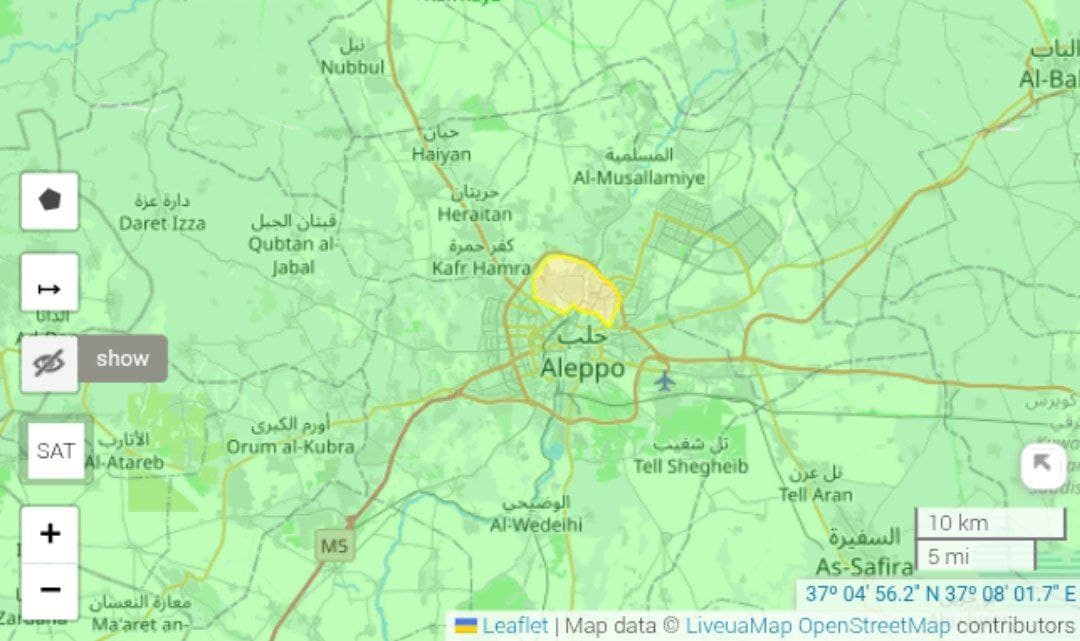Heavy Clashes Erupt in Aleppo as SDF and Syrian Army Battle for Control
In a significant escalation of violence, heavy clashes have erupted in the Sheikh Maqsood neighborhood of Aleppo, northwestern Syria, between the Syrian Democratic Forces (SDF) and the Syrian Army. Initial reports indicate that the fighting, which began early this morning, has resulted in numerous casualties and has heightened tensions in an already volatile region.
Background & Context
The Sheikh Maqsood neighborhood has long been a focal point of tension in Aleppo, a city that has endured years of conflict amid the Syrian civil war. The SDF, a predominantly Kurdish group, has controlled this area since 2012, establishing it as a bastion of relative stability in a city ravaged by conflict. The Syrian Army, loyal to President Bashar al-Assad, has sought to regain control over various territories lost during the war, including strategic areas held by the SDF.
This latest clash is rooted in the broader struggle for power between the Syrian government and various opposition forces, including the SDF. The SDF"s ties with the United States, particularly in the fight against ISIS, have complicated the dynamics on the ground, making any confrontation with the Syrian Army particularly fraught with geopolitical implications. As previously reported, the situation has been further complicated by increasing tensions between regional powers, as seen in recent developments involving military posturing across the region.
Key Developments
Eyewitnesses report that the clashes began around dawn, with heavy artillery fire and gun battles erupting in the streets of Sheikh Maqsood. The SDF has accused the Syrian Army of launching an unprovoked attack, while the government has claimed that the SDF is obstructing its efforts to secure the area. Local sources indicate that civilians are caught in the crossfire, with reports of injuries and fatalities among non-combatants.
As the fighting continues, both sides are mobilizing reinforcements, raising concerns about a potential escalation into a larger conflict. The SDF has called for international support, urging allies to intervene and protect the civilian population from what they describe as aggressive tactics employed by the Syrian Army. Meanwhile, the Assad regime has framed its military actions as necessary for restoring order and sovereignty in the region.
Broader Impact
The implications of these clashes extend beyond Aleppo, affecting the delicate balance of power across Syria. Analysts suggest that a sustained conflict between the SDF and the Syrian Army could lead to a significant realignment of alliances in the region. The U.S. has maintained a strategic partnership with the SDF, and any escalation in violence could compel Washington to reassess its military presence in Syria.
Moreover, this situation mirrors previous conflicts in the region, where local power struggles have been exacerbated by external influences. The ongoing conflict in Ukraine and the resultant strain on Russian resources may embolden the Assad regime to take more aggressive actions against opposition forces, further complicating the situation. As seen in related coverage regarding Russian military developments, the geopolitical landscape remains unpredictable and fraught with tension.
What"s Next
As the situation unfolds, international observers are closely monitoring the developments in Sheikh Maqsood. The potential for further clashes looms large, with both the SDF and the Syrian Army poised to escalate their military operations. Humanitarian organizations have expressed grave concerns about the impact on civilians, calling for immediate ceasefires and access for aid workers to provide assistance to those affected by the violence.
Looking ahead, the focus will be on diplomatic efforts to de-escalate tensions between the conflicting parties. The international community, particularly the U.S. and its allies, may need to intervene to prevent a humanitarian crisis from unfolding in Aleppo. As the conflict continues to evolve, the stakes remain high for all parties involved, with the potential for broader regional implications as the struggle for control in Syria intensifies.


![[Video] Heavy clashes and gunfire reported in Baghdad, Iraq](/_next/image?url=%2Fapi%2Fimage%2Fthumbnails%2Fthumbnail-1768342239932-848qsh-thumbnail.jpg&w=3840&q=75)




![[Video] Gunfire between Iraqi security forces and Sadr militias in Baghdad](/_next/image?url=%2Fapi%2Fimage%2Fthumbnails%2Fthumbnail-1768343508874-4redb-thumbnail.jpg&w=3840&q=75)
